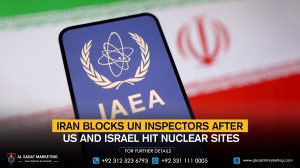An important step in the administration’s larger plan to stabilize the Middle East and promote regional diplomacy was taken on Monday when US President Donald Trump signed an executive order permanently easing the majority of US sanctions on Syria.
“The executive action instructs federal agencies to begin waiving additional restrictions enforced through congressional mandates, export controls, and other mechanisms,” senior administration officials said, rescinding five previous directives that were the foundation of the Syria sanctions program.
The action carries out Trump’s promise to lift sanctions on Syria, which he promised during a trip to Saudi Arabia in May. Saudi Arabia and Turkey support this demand, seeing it as crucial to Syria’s post-conflict reconstruction and economic reintegration into the region.
Although several limits had already been loosened by preliminary guidance published in late May, Monday’s ruling formalizes the change and makes the sanctions relief permanent.
The directive also asks government departments to look into the procedure for removing Syria’s classification as a state sponsor of terrorism and to consider penalties that the president cannot unilaterally eliminate, like those under the Caesar Act that need legislative approval. Under the leadership of Ahmed al-Sharaa, Syria’s new leader, the administration is also looking into the potential of revoking Hayat Tahrir al-Sham’s (HTS) terrorist designation.
Since 1979, the United States has imposed sanctions on Syria, first because it was identified as a state sponsor of terrorism.
When the Obama administration implemented broad sanctions in response to former President Bashar al-Assad’s harsh crackdown on anti-government uprisings in 2004 and 2011, these sanctions were greatly increased.
But since Assad’s regime collapsed in December, Syria’s political climate has drastically changed. A transitional government led by former Islamist terrorist Ahmed al-Sharaa seeks to wean the nation from decades of autocratic governance.
The Trump administration claims that civil society and humanitarian organizations, who contend that the punitive measures have hindered efforts to restore critical infrastructure and draw in foreign investment for reconstruction following over 13 years of conflict, broadly support the decision to lift sanctions.
According to officials, sanctions against Assad, his inner circle, and those seen to be destabilizing the area will continue, as will limitations on the proliferation of WMDs.
The policy change is a “blanket opportunity” to revitalize Syria’s economy and reunite the country without imposing strict limitations, according to US Ambassador to Turkey and Special Envoy for Syria Tom Barrack.
Instead of imposing conditions, the administration wants to create an atmosphere that will encourage economic growth and eventual involvement in programs such as the Abraham Accords, which are normalization agreements between Israel and many Arab nations mediated by the United States, according to Barrack.
A senior official claims that previous attempts to link sanctions release to particular benchmarks failed. Speaking on condition of anonymity, the official stated, “We think this approach will deliver that, economic opportunity, civil cooperation, and peace, which is the way to draw them into the Abraham Accords.”










